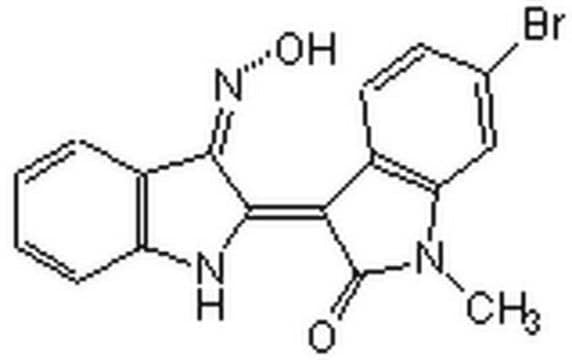361550
BIO
≥97% (HPLC), solid, GSK-3GSK-3α/β inhibitor, Calbiochem
Synonym(s):
GSK-3 Inhibitor IX, BIO, (2ʹ Z,3ʹ E)-6-Bromoindirubin-3ʹ-oxime, BIO, (2ʹZ,3ʹE)-6-Bromoindirubin-3ʹ-oxime
About This Item
Recommended Products
product name
GSK-3 Inhibitor IX, BIO, CAS 667463-62-9, is a cell-permeable, highly potent, selective, reversible, and ATP-competitive inhibitor of GSK-3α/β (IC₅₀ = 5 nM). Maintains self-renewal in human & mouse embryonic stem cells.
Quality Level
assay
≥97% (HPLC)
form
solid
manufacturer/tradename
Calbiochem®
storage condition
OK to freeze
protect from light
color
purple
solubility
DMSO: 5 mg/mL
shipped in
wet ice
storage temp.
2-8°C
Biochem/physiol Actions
Packaging
Warning
Legal Information
Storage Class
11 - Combustible Solids
wgk_germany
WGK 3
Certificates of Analysis (COA)
Search for Certificates of Analysis (COA) by entering the products Lot/Batch Number. Lot and Batch Numbers can be found on a product’s label following the words ‘Lot’ or ‘Batch’.
Already Own This Product?
Find documentation for the products that you have recently purchased in the Document Library.
Our team of scientists has experience in all areas of research including Life Science, Material Science, Chemical Synthesis, Chromatography, Analytical and many others.
Contact Technical Service





